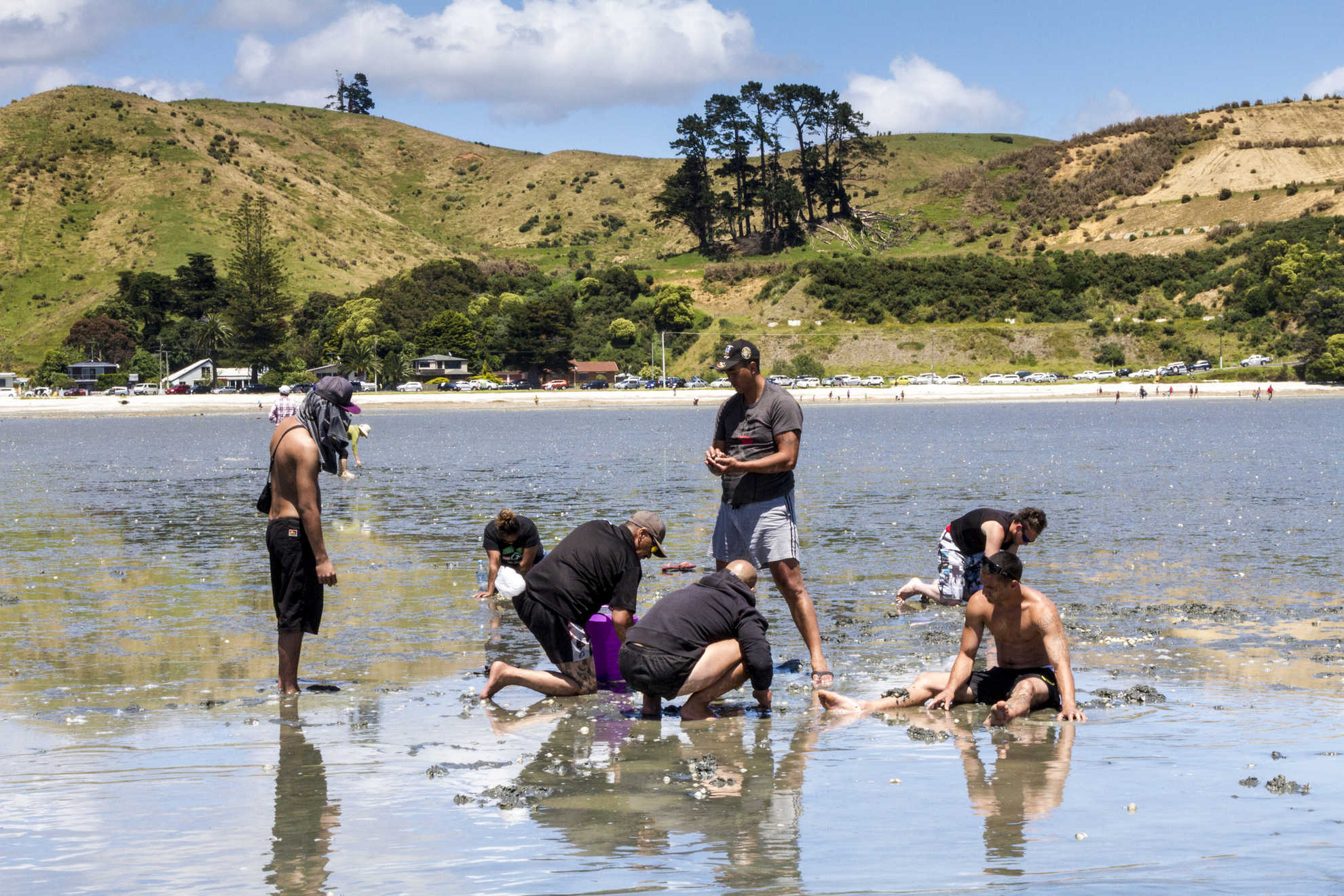Māori Role in Commercial Fishing
Māori have a long history in commercial fishing. They were trading in fish domestically prior to European arrival, and were actively involved in commercial fishing for provision to European explorers and settlers, from Captain Cook’s time onwards. Under the Treaty of Waitangi, Māori were guaranteed “undisturbed possession” of their fisheries until they wished to dispose of them to the Crown. 1e16e7ee-c8e8-44fb-9e7d-29806284eb53 Subsequent fisheries legislation and management regimes failed to uphold this guarantee. Over time, Māori found themselves largely dispossessed of their fisheries through depletion, habitat degradation and finally in the wake of the introduction of the Quota Management System (QMS) in the early 1980s, prior to which commercial fishing rights were taken away from part-time fishers, many who were Māori.
This brought the issue of Māori fishing rights to a head. The implementation of the QMS led to a particular concern by Māori that rights to fisheries guaranteed under the Treaty of Waitangi were being alienated by the Crown. In 1987 the High Court granted claimants relief through an injunction on the further implementation of the QMS pending settlement of the claims.

At that time, the Waitangi Tribunal was already considering claims in respect of fisheries resources and the 1988 Muriwhenua report found that the Crown was in breach of Treaty obligations. Significantly, the Tribunal found that the QMS was a fit and proper system for the management of fisheries, but that allocation of rights had not recognised the Māori interest.
This finding led to the interim settlement of claims legislated in the Māori Fisheries Act 1989, which provided for 10 per cent of all existing quota to be provided to Māori by the Crown. As a result, government bought back 10 per cent of the quota shares it had given to fishers under the QMS, and transferred these to the Treaty of Waitangi Fisheries Commission, for the benefit of Māori.
A further report by the Tribunal on claims by Ngāi Tahu found a more extensive “development interest” was inherent in the Treaty provisions and history of Māori fishing. This led to further negotiations between Māori and the Crown, culminating in the full and final settlement of commercial claims to fisheries in 1992. This involved government giving Māori a cash settlement that was used to buy half of New Zealand’s biggest fishing company – Sealord. The government also agreed to give Māori 20 per cent of the commercial quota shares of any new species brought into the QMS. 383d83a5-119e-4bd7-8299-65401029bf92
Māori have built their commercial stake to a point where they now control close to 30 per cent of New Zealand’s commercial fisheries. {{im:4471}.In 2004, Parliament approved the distribution to iwi of substantial fisheries assets and this is now being implemented by Te Ohu Kai Moana.
-
http://www.fish.govt.nz/en-nz/Commercial/About+the+Fishing+Industry/default.htm
-
http://www.fish.govt.nz/en-nz/Commercial/About+the+Fishing+Industry/default.htm
-
Hale L and J Rude J, 2017, Learning from New Zealand’s 30 years of epoerience managing fisheries under a quota management system, The Nature Conservancy, Arlington
Last updated at 4:17PM on November 23, 2017